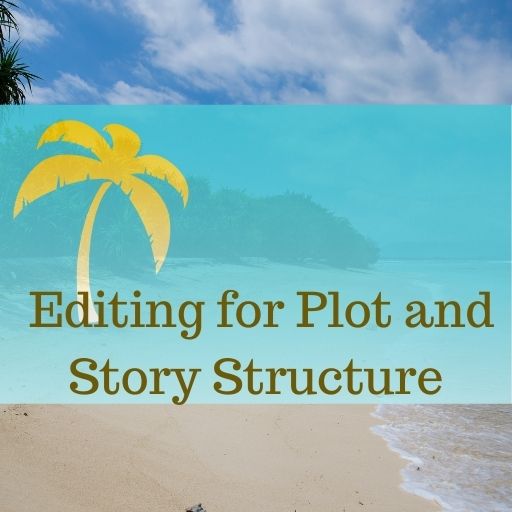Editing for a Satisfying Story Resolution
I’m not talking about those resolutions we all make on January 1. I mean the way a story ends: how the plot comes together, and the character arcs are ended.
Authors often struggle to end their stories in a way that readers will find satisfying. As a developmental editor, you can help.
What is a satisfying story resolution?
Every narrative arc has or should have a resolution. (I once purchased the first volume of a two-volume book, not realizing it was only the book’s first half. It ended mid-scene. This is not unlike the way some manuscripts end, which leaves the reader saying, “What?”)
Some resolutions are more satisfying than others, which means readers feel that the time they’ve invested in the book has been worthwhile.
This is not to say that a satisfying resolution = a happily ever after. A satisfying resolution can evoke sadness or righteous anger or any number of emotions, but the reader should feel that the story has ended appropriately to its content.
Typically, a comic novel needs a comic ending. A romance needs a happily ever after. A thriller needs the villain to be stopped.
In any type of novel, readers need to feel that while the characters may be getting on with their lives afterwards, they, and we, have been changed by what happens in the story.
The importance of emotional rewards to the reader
It can be difficult for authors to understand that readers read novels not just because they may be thought-provoking but because the experience is emotionally rewarding. While it may be appropriate for the novel’s ending to be some sort of intellectual or literary game, such approaches will often disappoint readers who expect more from the author.
Many inexperienced authors favor ambiguous endings (did she or didn’t she?), but readers want authors to have a point of view—to say something. Love triumphs, power corrupts, the world is absurd, whatever.
Ultimately, an author isn’t saying anything if they leave the resolution up to the reader. Thwarting expectations, in general, is always a risky business, but it can, in the right circumstances, be of literary value (the criminal gets away at the end of the mystery, for example, to prove a thematic point that, say, knowing the truth doesn’t necessarily mean justice prevails). Abdicating one’s role as an author, on the other hand, is a bit pointless.
Readers don’t experience cliffhangers as compelling bits of art designed to get them to read the next book. They experience them as tricks. Ambiguous and cliffhanger endings are ultimately unsatisfying.
Each book in a series must reach some sort of resolution, even if an overall narrative arc isn’t concluded until the end of the series. Not every author will believe this, and of course, you can’t make someone provide a satisfying resolution if they’ve chosen not to.
A satisfying resolution should not rely on deus ex machina, where an outside person or thing suddenly solves the knotty problem. It should be the culmination of what has come before.
Endings are difficult to get right, and often, a tweak to an ending will require making a dozen other changes going back to the beginning of the book. A book that is fantastic for two hundred pages but fails in the last two still, in the reader’s mind, fails.
Creating satisfying resolutions is important in the overall story arc and to satisfy the reader that their time was well spent reading this story.
Tips for Editors & Writers
The Fine Art of Copyediting Fiction
When copyediting fiction, it’s common to run up against issues that pit author preference against standard editing approaches. For example, in a story I wrote some years ago, the main character’s neighbor is referred to as “3-B” as that is her apartment number and the MC doesn’t know her name. Fine. She can be referred…
Let the manuscript teach you how to edit it
One of the lessons I’ve learned over many years of editing is that you have to let the manuscript teach you how to edit it. Every manuscript is different and every manuscript needs a different touch. Even when an author does something I’ve seen many times before, I have to edit for that particular manuscript,…
Helping Authors Strengthen Story Settings
The setting of a novel consists of multiple elements, big and small, that nest inside each other like those little Russian dolls. We might show this hierarchy of settings like so: If you think about it, the micro setting of “the living room of 601 San Mateo Road Apartment 16” implies the existence of all…
Join the Club!
New to story editing? Begin at the beginning.




